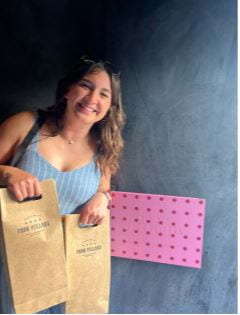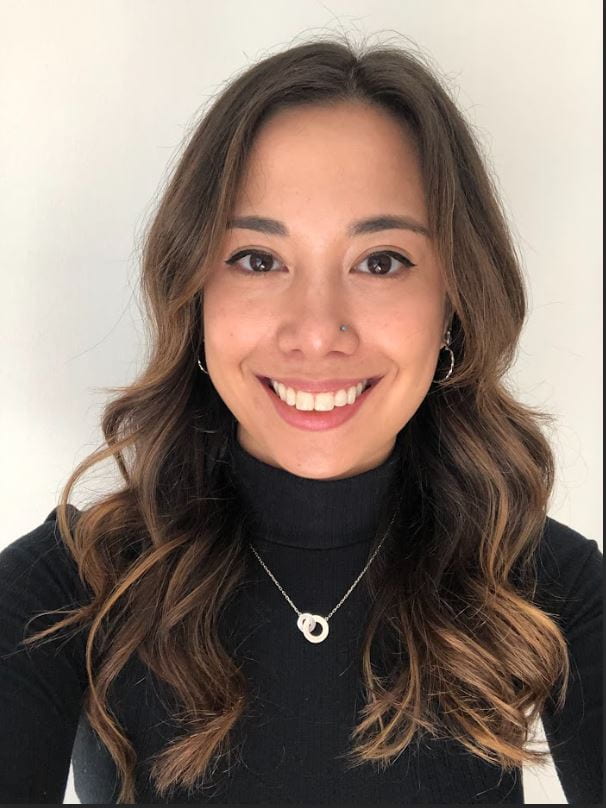
Justice, Equity, Diversity, Inclusion & Antiracism
Residents that have now graduated share their reasons for choosing UW/SCH
Statement on Antiracism
Statement on Antiracism: Systemic racism is a crisis that impacts our patients and community every day. As pediatricians, it is our responsibility to uphold the values of justice, inclusion, and equity. Our pediatric residency is committed to fostering an environment of inclusion that values individuals from minoritized backgrounds and individuals who are underrepresented minorities in medicine (URiM), including members of our community who identify as Black, Indigenous, and People of Color (BIPOC) and lesbian, gay, bisexual, transgender, gender diverse, intersex, queer, asexual, questioning, and allies LGBTQIA2S+.
What started in 2003 as specific efforts in recruitment and retention of minoritized individuals who identify as URiM to our program has grown into an intentional curriculum and environment surrounding inclusion and health equity.
Connect with Us
Diversity Committee Ambassadors
Have a question? Want to learn more? Many residents and faculty who are part of the Diversity Committee have volunteered to talk with applicants. Check them out below or here.
Dates with DComm
Join us for “Dates with DComm”. This is a great opportunity to mingle with residents and faculty and to learn more about our commitment to justice, equity, diversity, inclusion, and antiracism. Applicants will receive more information about their events prior to their interview day. Sign-up in Thalamus.
Monday, October 28th 7-830 pm PST
Monday, November 18th 7-630 pm PST
Monday, December 16th 7-830 pm PST
Peds PRIDE
Peds Pride is a group of UW Pediatrics/Seattle Children’s Hospital residents, fellows, and faculty who are part of the LGBTQIA2S+ community. Focus areas include education, advocacy & activism, mentorship, and community building. If you are interested in learning more, we would love for you to join “Dates with Pride,” an informal Zoom event where applicants can get to know LGBTQ+ identifying residents and hear about their experiences. SIGN-UP HERE. You can also fill out the form if you are unable to attend but would like to be connected to someone from Peds Pride.
Monday, December 9th, 6:00 – 7:30 pm PST

Residency Diversity Committee
The Diversity Committee (DComm) of the University of Washington/Seattle Children’s Pediatric Residency Program is a resident-led and faculty-mentored team that is committed to championing justice, equity, diversity, inclusion (JEDI), and antiracism. We carry out our goals through recruitment and retention activities, planning of a funded sub-internship for medical students committed to these values, community and mentorship events, protected safe spaces for minoritized groups and race-based caucusing, and advocacy efforts in our local institutions and communities. In doing so we hope to build inclusivity while celebrating people’s intersectional identities including racial, ethnic and cultural backgrounds; national origin; language; gender identity; sexuality; socio-economic status; disability; religion; history of immigration; and other identities. DComm is open to all members of the UW Pediatrics residency program, and we work in parallel and in conjunction with our UW Department of Pediatrics Faculty JEDI Committee.
Our efforts include:
-
- Recruitment
- Community and Mentorship
- Advocacy, Education & Outreach

Recruitment
- Participate in the recruitment of a diverse class of talented and unique individuals.
- Host social events including Dates with DCOMM and having residents attending national conferences such as the Student National Medical Association (SNMA), Latino Medical Student Association (LMSA), and more
- Coordinate funded clinical clerkships for visiting 4th year medical students with a commitment to diversity, equity, and inclusion work.
Community and Mentorship
- Provide safe spaces to process sensitive resident experiences related to diversity, equity, and inclusion.
- Build community across trainees and faculty through social events and partnership with the Faculty Justice, Equity, Diversity, and Inclusion (JEDI) Committee.
Advocacy, Education & Outreach
- Sponsor talks and events on discussion of diversity, equity, inclusion, and health disparities in conjunction with our INCLUDE curriculum.
- Partner with medical students on service and advocacy projects in the greater Seattle area.
- Support pathway programs for URiM students interested in health science careers.
University of Washington Network for Underrepresented Residents & Fellows (UW NURF)
Founded in 2010, the UW Network of Underrepresented Residents and Fellows (NURF) is a resident and fellow run organization. Co-sponsored by the UW Graduate Medical Education Office and the Office of Healthcare Equity, NURF consists of a diverse body of residents, fellows, faculty and staff, representing all specialties across the UW system. NURF’s aim is to promote cultural diversity in medicine through community involvement, education, advocacy, policy, mentorship, professional networking, and recruitment and retention of individuals who are underrepresented in medicine (URiM).
Residents share some of the JEDI efforts here at UW/SCH!
Curricula and Training
INCLUDE (INclusion, Cultural humiLity, Diversity, Equity) Curriculum
Since 2018, our nationally recognized INCLUDE longitudinal curriculum covers approximately 30 hours of material each year, including skill building, didactics, and small group discussions. These discussions include case-based conferences, book clubs, journal clubs, and humanism sessions. During intern year, there is dedicated time for EDI training, including sessions on cultural safety, addressing microaggressions, and the intersectionality of racism and medicine. Didactics are held throughout the year on issues related to health equity, such as trauma-informed care, LGBTQ+ health, religion in medicine, immigration law, climate change, and other topics.
Residents have the opportunity to join our INCLUDE Curriculum team to work with faculty and program leaders to shape our training and education as pediatricians. Our faculty leaders for INCLUDE consist of co-APD leads Dr. Tracy Seimears and Dr. Mollie Grow, with support from additional faculty including Dr. Elena Griego, Dr. Abena Knight, Dr. Sahar Rooholamini, Dr. Desiree Yeboah, and Dr. Jason Deen
The INCLUDE curriculum has created a safe space for residents to discuss and delve deeper to address inequities and push for institutional change. INCLUDE has also been a forum for residents to share feedback and be involved in helping design the curriculum.
Other Training Opportunities
- The University of Washington Department of Pediatrics and Pediatric Residency Program are fortunate to have several training opportunities in health equity during and after residency. Our long-standing Alaska Track enables residents to care for families in Alaska 3 months out of each year.
- The Resident Education & Advocacy in Child Health (REACH) Pathway enables residents to enrich their training in community health efforts in rural and global contexts within our categorical program.
- The University of Washington Department of Pediatrics has a Child Health Equity Research Program for Post-doctoral Trainees (CHERPP-T), a mentored, research project-based training program in health equity research, directed by Dr. Tumaini Coker and Dr. Jason Mendoza
Visiting Funded Acting Internship for Medical Students
This funded opportunity for students who demonstrate an interest and participation in diversity programs, those who have overcome significant barriers in their pathway to medicine, those who are involved in activities and/or organizations that serve diverse and/or marginalized communities and those who attend(ed) institutions that have historically served marginalized learners. We currently host up to 7 positions/year with rotations ranging from nephrology elective to inpatient acting internship rotations. Four of our current residents are alumni of the diversity acting internship – including Eddie Soto (PGY-3), Angela Roig as PGY-2, and Ruth Assefa, PGY-2 (currently a Psych intern at UW). Of our residents who also participated in the acting internship as students, 25% still work in the region our system serves. Learn more here.

Health Equity Track
Mission: To train a diverse group of pediatric residents to advance health equity for children and communities who are underserved and/or marginalized through collaborative clinical care, community partnership, advocacy, research and education. The University of Washington/Seattle Children’s Pediatric Residency Health Equity Track is designed to train the next generation of leaders and transformative thinkers in pediatric health equity across the clinical care spectrum. Residents are given dedicated blocks of protected time with few clinical requirements.
There are four priorities of the HET:
-
- Critical engagement, education and training on a number of issues related to health equity, social justice, and leadership
- Focused mentorship
- Protected time to work on a health equity project, and
- Community building
To learn more, check out the HET website & Instagram
Resident Initiatives
Health Equity Rounds (HER)
Developed by a group of residents in 2019, Seattle Health Equity Rounds (HER) is a series of interdisciplinary case-based discussions at Seattle Children’s Hospital that explores issues of equity, bias, and racism that play out in medical settings today. As resident physicians, we partner with nurses, social workers, and the larger healthcare workforce at SCH to lead and facilitate conferences with the intention of opening dialogue across disciplines to talk about how race and equity affect our patients and their care and the way that we work with one another. These conferences have led to important policy and behavioral changes within our institution that advance equity for our patients, families, and each other. Our HER conferences reach between 200-350 hospital workforce members each session. Past topics have included reviewing bias towards Indigenous families and the history of Indigenous family separation; racial bias towards families with parental substance use and disproportionate calls to Child Protective Services; inequitable care for families who speak a primary language other than English; refugee and migrant health; bias in care for children with severe neurological impairment; bias and pathways of the school to youth incarceration pathway; how heat inequity leads to social inequity; and more. Learn more here.

At SCH/UW Peds, I met a family of warm, genuine and caring people that celebrated the unique identities of everyone around them. I also found a rich academic environment where I could care for a wide array of pediatric pathologies and patient populations at a high-volume tertiary care center. The combination of a robust learning environment and inclusive program culture in one of the most beautiful regions in the country made SCH/UW an amazing place to pursue my residency training!
Empowered Voices
Our residents are advocates for patients and communities of color and use their voices and positions as medical professionals to improve the health and well-being of all our patients. Some examples of ways our residents have been involved in advocacy include:
- Residents have been leaders in eliminating racism from our hospitals and communities, advocating for anti-racist policy changes in our hospitals and raising national attention to the harms of racism in the healthcare system.
- Chinenyenwa Mpamaugo (class of ’23 and executive resident ’24) and Madeline Wozniak (class of ’22) had an article published in Health Affairs calling for hospitals to withdraw from the U.S. News and World Report’s rankings given its racist ranking scheme.
- Courtney Gilliam (class of ’19 and executive resident ’20) along with University of Washington faculty published a systematic review in JAMA Pediatrics about how race was frequently used in US-pediatric national clinical practice guidelines in a manner that could negatively affect health care inequities.
Hospital Initiatives
Commitment to Anti-Racism
Racism is a public health crisis and has no place in our organization. In order to identify, challenge, and change the culture, structure and behaviors that perpetuate systemic racism, Seattle Children’s Hospital has adopted a long-term comprehensive plan to move this vision forward – Health Equity and Anti-Racism Action Plan. This plan includes policy reviews, improved education, and leadership accountability, including the development of a workforce Health Equity and Anti-Racism (HEAR) Council . The council focuses on workforce experience and communication, as well as improved data analysis and transparency.
University of Washington Medicine Center for Health Equity, Diversity, & Inclusion
The mission of the UW Medicine Office of Healthcare Equity (OHCE) is to reduce disparities in healthcare delivery by educating health professionals informed by principles of diversity, equity, inclusion, and justice; to be a national model for healthcare equity; and to provide local and national leadership in healthcare equity and healthcare justice research.
Seattle Children’s Hospital, Center for Diversity and Health Equity (CDHE)
The mission of Center for Diversity and Health Equity (CDHE) is to prioritize equity by advocating for and facilitating the relentless work toward the recognition and elimination of health inequities for children, families, and communities, through an inclusive and anti-racist framework. Some of the many programs/services utilized daily by our residents include the Patient Navigation program, Interpreter Services, Spiritual Care, and Health Equity Consult program.




























